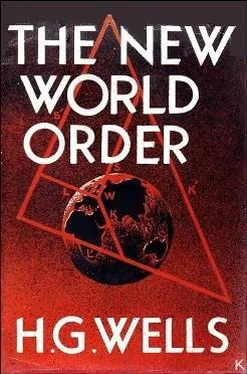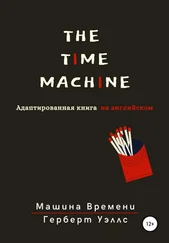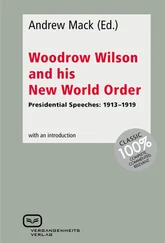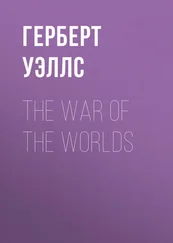Герберт Уэллс - The New World Order
Здесь есть возможность читать онлайн «Герберт Уэллс - The New World Order» весь текст электронной книги совершенно бесплатно (целиком полную версию без сокращений). В некоторых случаях можно слушать аудио, скачать через торрент в формате fb2 и присутствует краткое содержание. Год выпуска: 1940, Жанр: Политика, Публицистика, на английском языке. Описание произведения, (предисловие) а так же отзывы посетителей доступны на портале библиотеки ЛибКат.
- Название:The New World Order
- Автор:
- Жанр:
- Год:1940
- ISBN:нет данных
- Рейтинг книги:4 / 5. Голосов: 1
-
Избранное:Добавить в избранное
- Отзывы:
-
Ваша оценка:
- 80
- 1
- 2
- 3
- 4
- 5
The New World Order: краткое содержание, описание и аннотация
Предлагаем к чтению аннотацию, описание, краткое содержание или предисловие (зависит от того, что написал сам автор книги «The New World Order»). Если вы не нашли необходимую информацию о книге — напишите в комментариях, мы постараемся отыскать её.
The New World Order — читать онлайн бесплатно полную книгу (весь текст) целиком
Ниже представлен текст книги, разбитый по страницам. Система сохранения места последней прочитанной страницы, позволяет с удобством читать онлайн бесплатно книгу «The New World Order», без необходимости каждый раз заново искать на чём Вы остановились. Поставьте закладку, и сможете в любой момент перейти на страницу, на которой закончили чтение.
Интервал:
Закладка:
Great Britain has in effect gone socialist in a couple of months; she is also suspending party politics. Just as the United States did in the great slump. And in both cases this has happened because the rottenness and inefficiency of party politics stank to heaven in the face of danger. And since in both cases Party Government threw up its hands and bolted, is there any conceivable reason why we should let it come back at any appearance of victory or recovery, why we should not go ahead from where we are to a less impromptu socialist regime under a permanent non-party administration, to the reality if not to the form of a permanent socialist government?
Now here I have nothing to suggest about America. I have never, for example, tried to work out the consequences of the absence of executive ministers from the legislature. I am inclined to think that is one of the weak points in the Constitution and that the English usage which exposes the minister to question time in the House and makes him a prime mover in legislation affecting his department, is a less complicated and therefore more democratic arrangement than the American one. And the powers and functions of the President and the Senate are so different from the consolidated powers of Cabinet and Prime Minister, that even when an Englishman has industriously "mugged up" the constitutional points, he is still almost as much at a loss to get the living reality as he would be if he were shown the score of an opera before hearing it played or the blue prints of a machine he had never seen in action. Very few Europeans understand the history of Woodrow Wilson, the Senate and his League of Nations. They think that "America", which they imagine as a large single individual, planted the latter institution upon Europe and then deliberately shuffled out of her responsibility for it, and they will never think otherwise. And they think that "America" kept out of the war to the very limit of decency, overcharged us for munitions that contributed to the common victory, and made a grievance because the consequent debt was not discharged. They talk like that while Americans talk as if no English were killed between 1914 and 1918 (we had 800,000 dead) until the noble American conscripts came forward to die for them (to the tune of about 50,000). Savour for example even the title of Quincy Howe's England expects every American to do his Duty. It's the meanest of titles, but many Americans seem to like it.
On my desk as I write is a pamphlet by a Mr Robert Randall, nicely cyclostyled and got up, which urges a common attack on the United States as a solution of the problem of Europe. No countries will ever feel united unless they have a common enemy, and the natural common enemy for Europe, it is declared, is the United States. So to bring about the United States of Europe we are to begin by denouncing the Monroe doctrine. I believe in the honesty and good intentions of Mr Robert Randall; he is, I am sure, no more in the pay of Germany, direct or indirect, than Mr Quincy Howe or Mr Harry Elmer Barnes; but could the most brilliant of Nazi war propagandists devise a more effective estranging suggestion?.
But I wander from my topic. I do not know how sane men in America are going to set about relaxing the stranglehold of the Constitution, get control of their own country out of the hands of those lumpish, solemnly cunning politicians with their great strong jowls developed by chewing-gum and orotund speaking, whose photographs add a real element of frightfulness to the pages of Time, how they are going to abolish the spoils system, discover, and educate to expand a competent civil service able to redeem the hampered promises of the New Deal and pull America into line with the reconstruction of the rest of the world. But I perceive that in politics and indeed in most things, the underlying humour and sanity of Americans are apt to find a way round and do the impossible, and I have as little doubt they will manage it somehow as I have when I see a street performer on his little chair and carpet, all tied up with chains, waiting until there are sufficient pennies in the hat to justify exertion.
These differences in method, pace and tradition are a great misfortune to the whole English-speaking world. We English people do not respect Americans enough; we are too disposed to think they are all Quincy Howes and Harry Elmer Barneses and Borahs and suchlike, conceited and suspicious anti-British monomaniacs, who must be humoured at any cost; which is why we are never so frank and rude with them as they deserve. But the more we must contain ourselves the less we love them. Real brothers can curse each other and keep friends. Someday Britannia will give Columbia a piece of her mind, and that may clear the air. Said an exasperated Englishman to me a day or so ago: "I pray to God they keep out of the end of THIS war anyhow. We shall never hear the last of it if they don't. "
Yet at a different pace our two peoples are travelling towards identical ends, and it is lamentable that a difference of accent and idiom should do more mischief than a difference of language.
So far as Great Britain goes things are nearer and closer to me, and it seems to me that there is an excellent opportunity now to catch the country in a state of socialisation and suspended party politics, and keep it at that. It is a logical but often disregarded corollary of the virtual creation of All-Party National Governments and suspension of electoral contests, that since there is no Opposition, party criticism should give place to individual criticism of ministers, and instead of throwing out governments we should set ourselves to throw out individual administrative failures. We need no longer confine our choice of public servants to political careerists. We can insist upon men who have done things and can do things, and whenever an election occurs we can organise a block of non-party voters who will vote if possible for an outsider of proved ability, and will at any rate insist on a clear statement from every Parliamentary candidate of the concrete service, if any, he has done the country, of his past and present financial entanglements and his family relationships and of any title he possesses. We can get these necessary particulars published and note what newspapers decline to do so. And if there are still only politicians to vote for, we can at least vote and spoil our voting cards by way of protest.
At present we see one public service after another in a mess through the incompetent handling of some party hack and the unseen activities of interested parties. People are asking already why Sir Arthur Salter is not in control of Allied Shipping again, Sir John Orr directing our food supply with perhaps Sir Frederick Keeble to help him, Sir Robert Vansittart in the Foreign Office. We want to know the individuals responsible for the incapacity of our Intelligence and Propaganda Ministries, so that we may induce them to quit public life. It would be quite easy now to excite a number of anxious people with a cry for "Competence not Party".
Most people in the British Isles are heartily sick of Mr Chamberlain and his government, but they cannot face up to a political split in wartime, and Mr Chamberlain sticks to office with all the pertinacity of a Barnacle. But if we do not attack the government as a whole, but individual ministers, and if we replace them one by one, we shall presently have a government so rejuvenated that even Mr Chamberlain will realise and accept his superannuation. Quite a small body of public-spirited people could organise an active Vigilance Society to keep these ideas before the mass of voters and begin the elimination of inferior elements from our public life. This would be a practical job of primary importance in our political regeneration. It would lead directly to a new and more efficient political structure to carry on after the present war has collapsed or otherwise ended.
Читать дальшеИнтервал:
Закладка:
Похожие книги на «The New World Order»
Представляем Вашему вниманию похожие книги на «The New World Order» списком для выбора. Мы отобрали схожую по названию и смыслу литературу в надежде предоставить читателям больше вариантов отыскать новые, интересные, ещё непрочитанные произведения.
Обсуждение, отзывы о книге «The New World Order» и просто собственные мнения читателей. Оставьте ваши комментарии, напишите, что Вы думаете о произведении, его смысле или главных героях. Укажите что конкретно понравилось, а что нет, и почему Вы так считаете.

![Герберт Уэллс - The War of the Worlds [С англо-русским словарем]](/books/26611/gerbert-uells-the-war-of-the-worlds-s-anglo-thumb.webp)










